As humans, it’s natural to gravitate toward our comfort zone. The safety and comfort associated with routine and known expectations and outcomes (whether good or bad) is much easier than trying to embrace something new and unfamiliar. For research teams and administrators, the comfort zone may center around existing, long-standing processes or systems. They may not be the most efficient or even the most accurate, but they are comfortable because they are known and already part of the routine. The problem with the comfort zone, however, is that it stalls growth and could actually put your research program at risk.
Risk Point: Inability to Scale
As we learn and accumulate successes, we inherently desire more opportunities for growth. For research organizations, this means expanding and enhancing the research portfolio to take on a greater number of interesting projects and achieve even more positive outcomes. Scaling a research program while still planted firmly in the comfort of manual processes and disconnected systems is virtually impossible. The sheer number of documents, communication points, stakeholders, and rules becomes unsustainable to manage as the number and complexity of research projects increases.
As Jill Borland, Director of Sponsored Projects Services at Chapman University explained, “Before Cayuse, we were using spreadsheets and printing out PDFs. With our research growth, there’s no way we could maintain that. The data entry took forever, because there were so many places to capture data.”
Risk Point: Compliance
Remaining in compliance with state and federal regulations, as well as institutional requirements is critical to the success of your research projects. If you’re seeking out updates to these rules and regulations manually, you could easily (albeit not on purpose) miss a key change that could put your project in jeopardy. Or, at the very least, you’re making your life much harder than necessary.
For the team at University of Colorado Anschutz Medical Campus, compliance challenges came in the form of reactive verification versus proactive management. “Previously, animal ordering compliance was on the honor system. We couldn’t be proactive,” commented Lorraine Bell, Training Program Manager. Now, “Cayuse has completely enabled us to be ahead of regulatory compliance. We’re proactive instead of reactive.”
Risk Point: Decreased Job Satisfaction
We are creatures of habit. If that habit today consists of routing physical documents to complete reviews and gather wet signatures, maintaining physical records in that dusty filing cabinet in the back corner office, or even managing digital files in various disconnected systems, there’s probably room for improvement. Ultimately, relying on outdated processes and systems will dampen the satisfaction of not only research administrators, but also faculty members and other stakeholders. Inefficient or cumbersome processes cause frustration, miscommunication, and confusion. It’s likely not much of a stretch to imagine the challenge with trying to figure out the current status of a research project when dealing with a mash-up of physical files and digital updates in a variety of systems. Although these tasks are essential and truly valuable to the research management process, they create burden and, let’s be honest, stress.
As many of us know first hand, decreased satisfaction over time can lead to unnecessary errors, delays, and even turnover.
“It all started on paper. Budget tracking was all done manually – paper forms, applications, PDFs, Excel files. It was a very disjointed process because a lot of things took place via email,” commented Nada Messaikeh, Associate Provost for Research Administration at NYU Abu Dhabi. “With Cayuse, our internal proposals review time is cut in half. What used to take three months to review with hundreds of email communications now takes only six weeks,” added Holly Mace, Pre-Awards Grant Manager at NYU Abu Dhabi.
Challenge Your Comfort Zone with a Modern Approach to Research Administration
“All growth starts at the end of your comfort zone.”
– Tony Robbins, American Author, Coach, Speaker, and Philanthropist
To grow personally and professionally, we must challenge ourselves to break free from our comfort zone and dare to explore the unfamiliar. Change is difficult, but it often leads to amazing results. In the world of research administration, this means adopting technology like the Cayuse Research Suite to automate workflows, connect records and stakeholders, increase visibility into every stage of the process, ensure compliance, and drive program growth.
Here’s a look at a couple more research organizations who challenged their comfort zone with Cayuse:
“Before Cayuse, it would take me three weeks to pull data from each individual file [for reporting,” commended Amanda Breeden, Director of Sponsored Programs and Research at Denver Health. “Cayuse catches every error. We love it. Before, we were using tools that didn’t have error-checking. Things happen really fast and can get missed, so Cayuse helps.”
“The critical challenge we faced revolved around a lack of accessible data. We couldn’t efficiently monitor what proposals we submitted last year, didn’t know what our success rate was, and couldn’t evaluate our portfolio mix. Finding documents and extracting metrics was really difficult,” says Charlie Resare, System Director of Grants and Finance at Providence. “Cayuse has been a game changer automating processes that were previously manual, as well as helping with checking for compliance-related issues.”
At Cayuse, we are committed to empowering organizations to conduct globally connected research and sponsored projects, advancing their impact on science, discovery, and society. The Cayuse Research Suite is purpose-built by researchers, for researchers. We know the pull of your comfort zone as a research administrator and the discomfort associated with change. That’s why we make the process as easy as possible, with top-tier support at every stage. With Cayuse, you’re not abandoning comfort, you’re replacing it with a better, more modern comfort zone that can carry you and your team for years to come.


